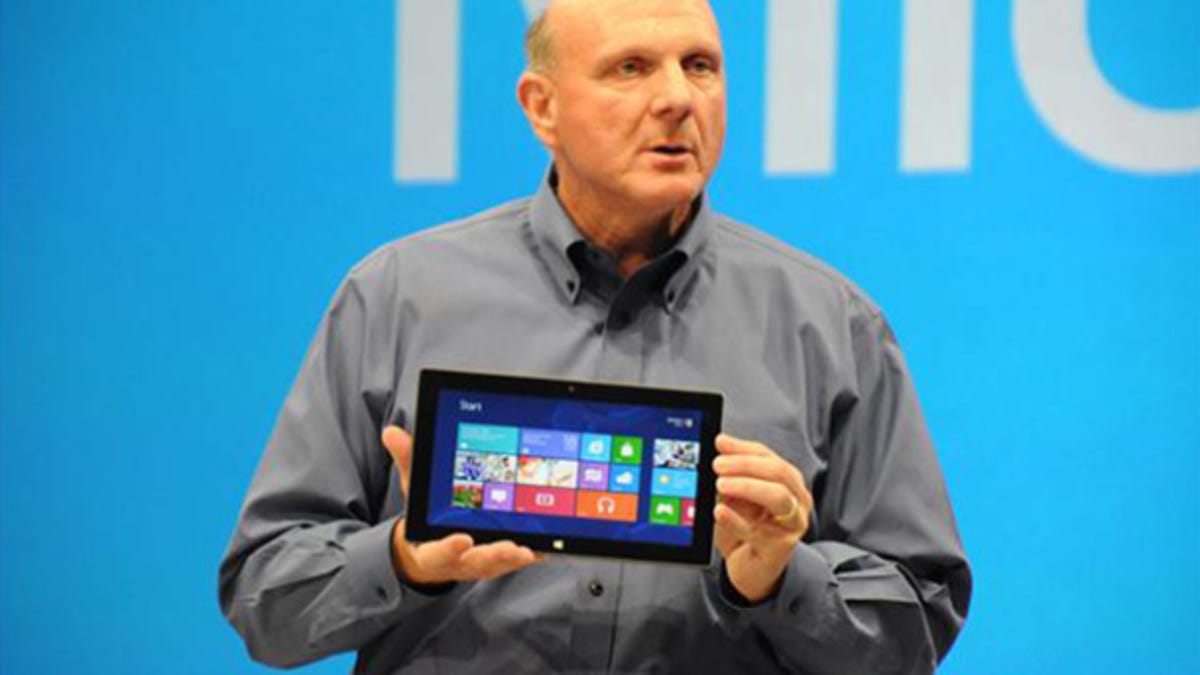Can Microsoft thrive if just 20 percent of devices run Windows?
Asymco's Horace Dediu says that just 20 percent of a rapidly expanding global market for computing devices will be a "viable" business for Microsoft.

In the PC era, Microsoft's Windows dominated with more than 90 percent market share of systems, including desktops and laptops. It was a virtual monopoly, and Microsoft was able to attract the best and brightest talent and developers. With the massive shift to mobile devices, however, Microsoft has fallen behind where the market is heading.
But reports of the death of the PC are premature. According to Net Applications, Microsoft is still the king of the desktop, with about an 83 percent share of the desktop market.
However, that market is in steep decline, with PC sales falling nearly 14 percent in the first quarter of 2013, according to IDC, as tablets grow in popularity as desktop replacements. But Windows 8 and the Surface tablets haven't sparked buying sprees.
Microsoft's share of mobile operating system usage, including phones and tablets, is less than 2 percent, trailing Apple's more than 59 percent, according to Net Applications data.
Microsoft appears to be have some green shoots of progress with Windows Phone. For the three months ending April 13, it had 5.6 percent of smartphone sales in the U.S., up from 3.8 in the same period in 2012, according to Kantar Worldpanel ComTech. But that's a long way from the good old days of the desktop.
Microsoft's slow climb from the bottom on phones, or tablets, won't offset shrinking PC sales, and the leaders, Android and iOS, continue to aggressively push their platform to users and developers.
Asymco analyst Horace Dediu doesn't view Microsoft's situation over the next five years as dire, even as Microsoft's share of personal computers -- including desktops, laptops, and tablets -- likely slips below 50 percent this year.
Dediu suggests that with traditional desktop sales declining, Windows tablets need to keep pace with overall tablet market growth in order for Microsoft to at least stabilize its market share. But Microsoft, with its ARM-based Windows RT tablets, has so far made little impact versus Apple's iPad and the horde of Android devices. Bloomberg reports that Microsoft is cutting its pricing on RT tablets to incent more manufacturers to build Windows RT devices.
Then there is the long view. Dediu suggests that even if Microsoft's share of the global computing market slips to 20 percent, it's a "viable" business into the future and sizable enough to attract app developers looking to make money from both consumer and business users. Dediu wrote:
The total computing market is likely to expand to over 4 billion users with 1.5 devices per user in the next five years. That expansion implies that 20% share equals more than one billion devices, making such an ecosystem "good enough" for the average developer. It certainly has been good enough for Windows developers to date and they have kept hiring it throughout the new mobile app revolution.
Microsoft is nothing if not persistent, and the business of operating systems is more in the company's wheelhouse than trying to conquer search. In April, comScore reported that Microsoft's Bing search engine topped 17 percent in U.S. searches for the first time in its 5 years of existence. Add in Yahoo search, which Bing powers, and it's more than 30 percent of U.S. searches, compared to Google's 66.5 percent for the same period.
Claiming 30 percent of the total computing market in five or ten years, and having more than a billion users attached to the Windows brand, wouldn't be a bad outcome for a company that badly missed the first wave of the move to mobile devices and cloud services.

